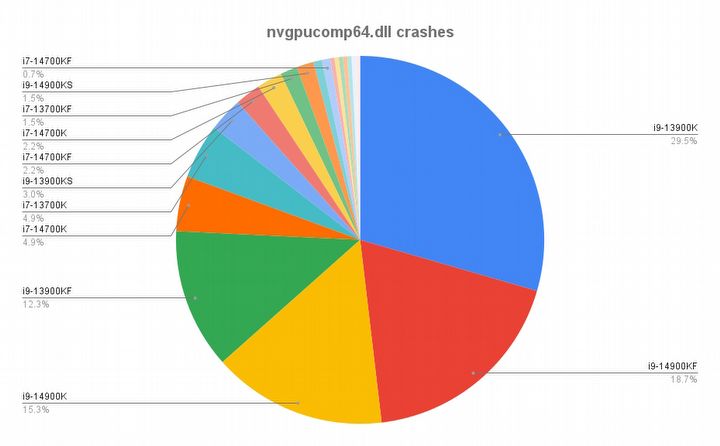Frustrated Dev Accused Intel of Selling „Defective” Raptor Lake Processors and Started Using AMD Hardware
Alderon Games studio accused Intel of selling defective processors in the Raptor Lake series, the 13th and 14th generations. The existence of the problem was also confirmed by the developers of the Warframe game.

The top-tier Intel processors from the Raptor Lake series (i9 and i7 from the 13th and 14th generations) have been facing some issues since their release. They manifest themselves not only in game crashes, but also in server instability. The situation became so serious that one studio outright called them faulty and decided to completely cut ties with Intel.
Alderon Games cuts ties with Intel
Alderon Games, an Australian company, published a letter with the blunt title "Intel is selling defective 13-14th Gen CPUs," in which they clearly expressed their dissatisfaction.
My team at Alderon Games, working on the multiplayer dinosaur survival game Path of Titans, has been encountering significant problems with Intel CPU stability. These issues, including crashes, instability, and memory corruption, are confined to the 13th and 14th-generation processors. Despite all released microcode, BIOS, and firmware updates, the problem remains unresolved.
The studio then listed the main problems it encountered during work and pointed out that initially, the processors worked well, but over time they deteriorated until they finally broke down. Internal tests were even conducted, which supposedly show that the failure rate is almost 100%.
Thus, Alderon Games made a significant decision to completely switch to AMD processors. It was also recommended that the same be done by companies hosting Path of Titans servers, and a suitable message for players will be placed in the game itself.
Data from Warframe developers
As if that wasn't enough, the developers of the game Warframe also added fuel to the fire. They shared a chart comparing the processors that players used to experience failures. Most of them occurred on computers equipped with Intel 13th and 14th-generation processors.
Interestingly, one of the game developers also faced continuous malfunctions, despite the other machines in the studio working correctly. In accordance with Intel's recommendations, the dev updated the BIOS, which resolved the problem.
Nonetheless, stability issues with some processors from the Raptor Lake series still exist and are serious. Intel is also aware of this, but still cannot identify the source of the malfunctions. As reported by The Register:
Intel and its partners are continuing to investigate user reports regarding instability issues on Intel Core 13th and 14th generation (K/KF/KS) desktop processors.
So if you are planning to switch to one of the CPUs discussed above in the near future, it would be better to hold off on that decision for now.
0

Author: Martin Bukowski
Graduate of Electronics and Telecommunications at the Gdańsk University of Technology, who decided to dedicate his life to video games. In his childhood, he would get lost in the Gothic's Valley of Mines and "grind for gold" in League of Legends. Twenty years later, games still entertain him just as much. Today, he considers the Persona series and soulslike titles from From Software as his favorite games. He avoids consoles, and a special place in his heart is reserved for PC. In his spare time, he works as a translator, is creating his first game, or spends time watching movies and series (mainly animated ones).
Latest News
- End of remote work and 60 hours a week. Demo of Naughty Dog's new game was born amid a crunch atmosphere
- She's the new Lara Croft, but she still lives in fear. Trauma after Perfect Dark changed the actress' approach to the industry
- „A lot has become lost in translation.” Swen Vincke suggests that the scandal surrounding Divinity is a big misunderstanding
- Stuck in development limbo for years, ARK 2 is now planned for 2028
- Few people know about it, but it's an RPG mixing Dark Souls and NieR that has received excellent reviews on Steam, and its first DLC will be released soon



